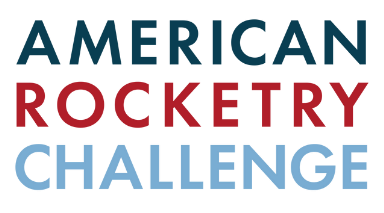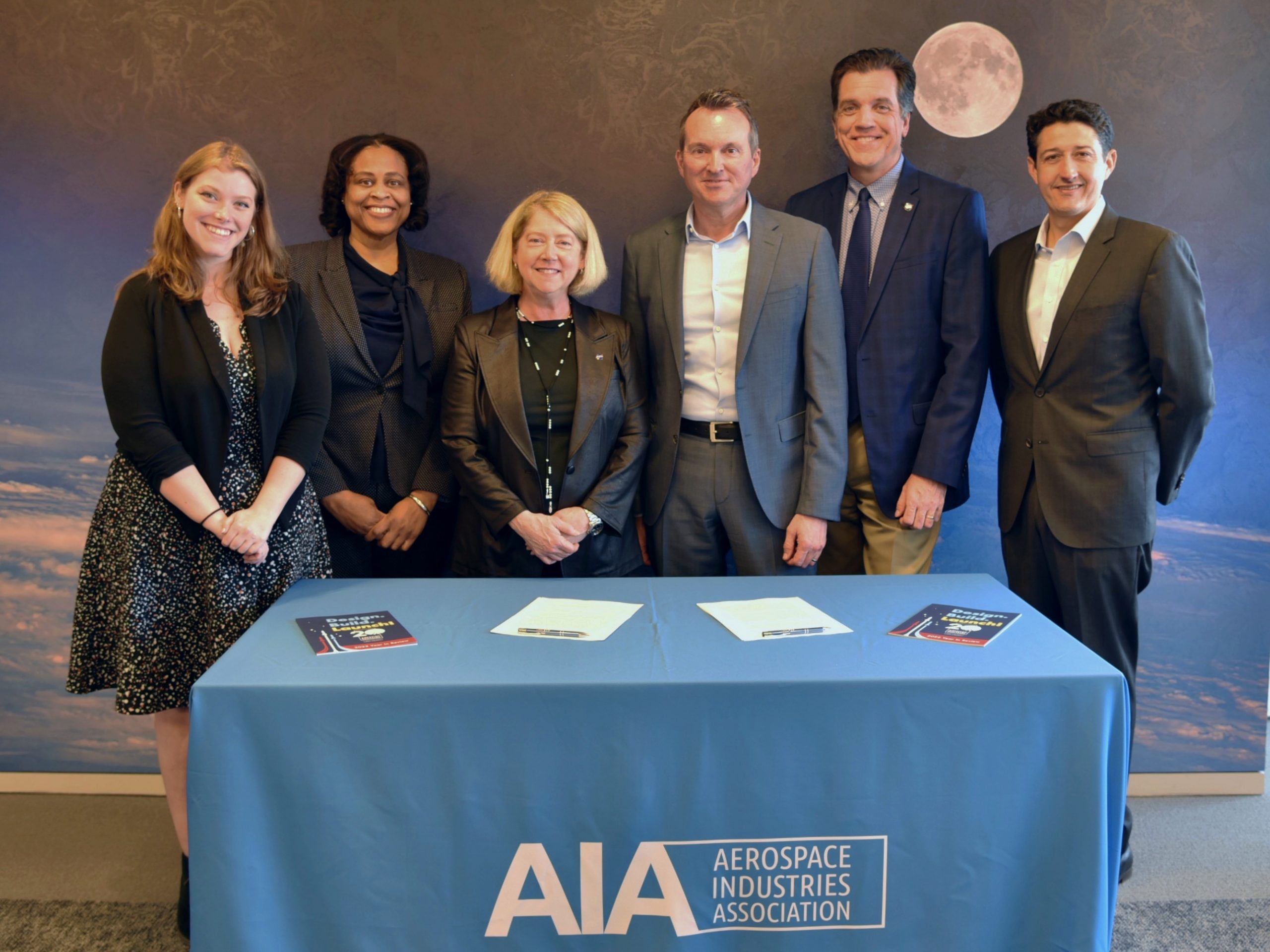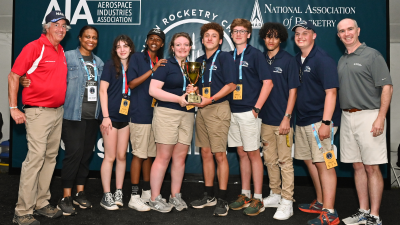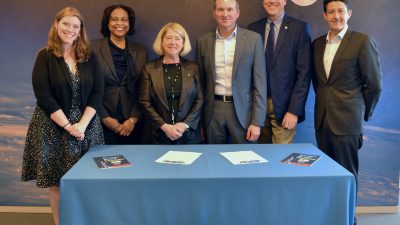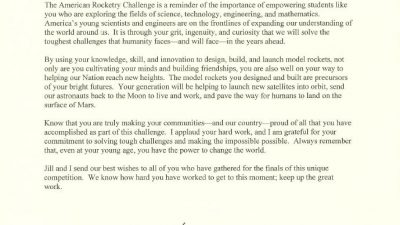Photo: Deputy Administrator Pam Melroy (third from left) at ceremonial Space Act Agreement announcement on March 28, 2023 with Aerospace Industries Association President and CEO Eric Fanning (third from right). L to R Savannah Horton, Katrina Hill, NASA Deputy Administrator Pam Melroy, AIA President & CEO Eric Fanning, Mike Kincaid, Mike French.
Arlington, VA (Mar 28, 2023) – Built on the shared interest in attracting diverse groups of students to STEM and aerospace, the Aerospace Industries Association (AIA) announced today it signed a Space Act Agreement with National Aeronautics and Space Administration (NASA) to inspire the next generation of aerospace and STEM professionals. The agreement will enable AIA to expand upon its award-winning American Rocketry Challenge program to create opportunities that broaden student participation in aerospace and provide connections to NASA’s Artemis program and other NASA missions.
The partnership’s first initiative will launch in Summer 2023 and engage second through sixth grade students from historically excluded backgrounds in STEM to the field of aerospace through a pilot program developed for clubs and summer camps. As part of the agreement, NASA experts will meet with students to share technical rocketry expertise, career advice, STEM education lessons and resources.
“Together with NASA, we’re working to ignite the spark of innovation in a new generation of leaders and to launch them on a trajectory towards a bright and exciting future in STEM,” said AIA President and CEO Eric Fanning. “Through intentional and inclusive outreach, we’re empowering students from all backgrounds to reach for the stars and unlock a world of untold possibilities in the aerospace industry.”
The pilot program will target traditionally underrepresented students in STEM from urban and rural areas, tribal communities, and youth-serving organizations. It will be provided free of charge and include physical and virtual content to spark interest in STEM, aerospace, and NASA missions. AIA intends to scale the program up to reach additional audiences upon completion of the pilot.
“Our nation is just beginning a brand-new chapter in human spaceflight with Artemis, so this is a critical time to engage tomorrow’s aerospace workforce,” said Mike Kincaid, associate administrator of NASA’s Office of STEM Engagement. “Rocketry is a fantastic way to introduce students to STEM careers and get them thinking about their own dreams and abilities.”
Since 2002, the American Rocketry Challenge has engaged 90,000 middle and high school students from across the United States to design, build and launch model rockets capable of meeting rigorous mission parameters. Program alumni are working on missions that are taking us back to the Moon, to Mars, and even traveling to space themselves.
On March 2, 2023, American Rocketry Challenge alum Warren “Woody” Hoburg flew to the International Space Station as the mission pilot for a six-month mission as part of NASA’s SpaceX Crew-6. Woody participated in the first-ever American Rocketry Challenge in 2003, then known as the Team America Rocketry Challenge, as a North Allegheny High School (Pennsylvania) team member.
“Launching to space is, literally, rocket science that requires tens of thousands of hours of planning, design, and testing,” continued Fanning. “It requires diverse teams to create the best plan and rocket together. Our students garner this invaluable experience firsthand as they launch rockets through the American Rocketry Challenge and, soon, through the pilot program. We’re thrilled to see Woody on the Space Station and can’t wait to watch countless more program alumni coming together at NASA and across the industry to send one another to space.”
###
